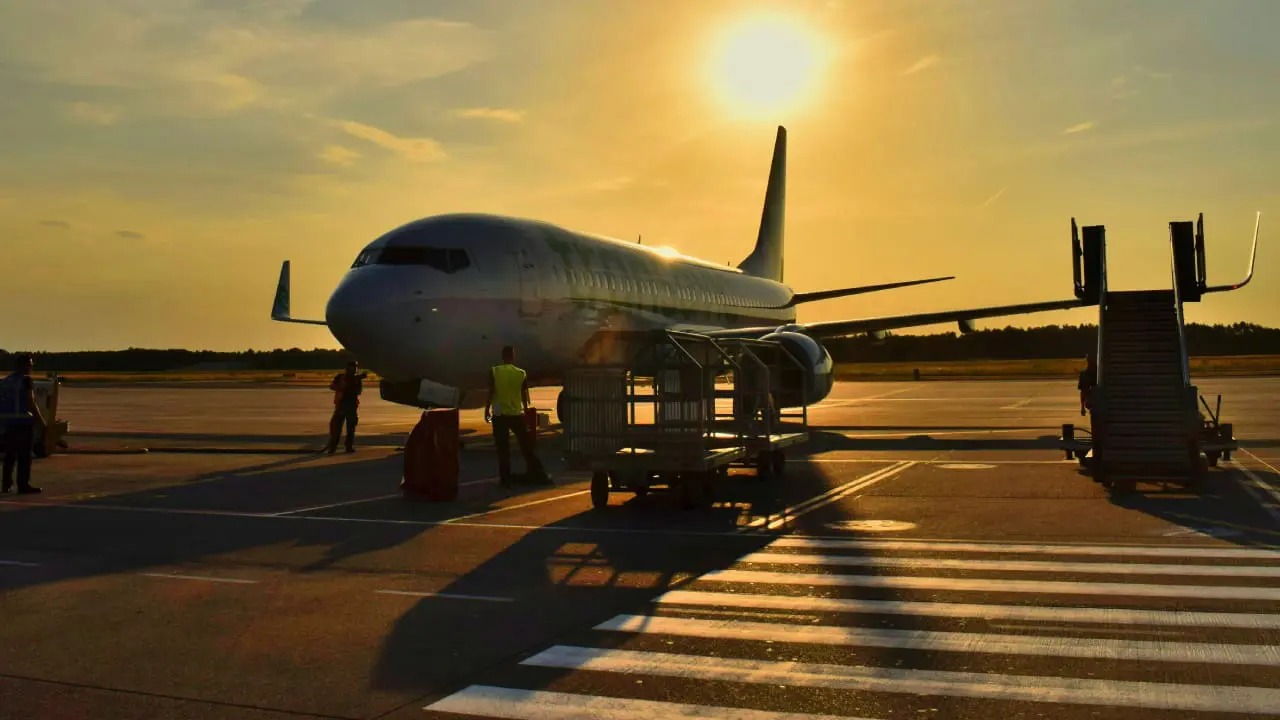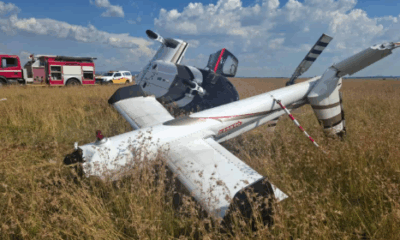Business
SA Airports on the Brink: Why Jet Fuel Could Run Dry by October

Outdated laws, refinery shutdowns and red tape could ground flights at the worst possible time
South Africa’s aviation sector is staring down the barrel of a jet fuel crisis again. With only weeks to go before the year-end tourist rush, the country’s major airports could run dry of aviation fuel by October 2025 unless urgent steps are taken.
And the cause? Not just ageing infrastructure or international prices, but a little-known law from 1964 that’s no longer fit for purpose.
The next fuel emergency?
Avhapfani Tshifularo, CEO of the South African Petroleum Association, didn’t mince his words when speaking at a Johannesburg fuels forum in July: “If regulatory issues aren’t resolved by October, we will be in serious trouble.”
His warning comes on the back of several alarming developments. South Africa once had five operating fuel refineries. Now, just two are left, NATREF in Sasolburg and Astron in Cape Town, and one of them is set to shut down for maintenance from August through September.
This leaves the country almost entirely dependent on imported fuel. But here’s the problem: the current laws don’t allow for easy imports or exports unless the fuel goes through a refinery, a near impossibility when most of those refineries are no longer operational.
A repeat of OR Tambo’s nightmare?
If this all sounds familiar, it’s because we’ve seen it before. In December 2024, OR Tambo International Airport, the country’s busiest travel hub, suffered massive delays and cancellations due to a fuel valve failure. Weeks later, a fire at the NATREF refinery made things worse, choking off supply and forcing the industry into crisis mode.
That time, the sector managed to dodge disaster by routing fuel through Mozambique’s Matola port. But even then, bureaucratic red tape from SARS delayed the solution by three weeks, and the emergency license that made it possible has since been revoked.
In other words, we might not be so lucky next time.
Why the 1964 Customs Act is the real villain
At the heart of this growing crisis is the Customs and Excise Act of 1964, a relic from a time when South Africa’s fuel distribution relied on refineries.
Under the law, jet fuel imports must pass through a refinery before reaching an airport. Exports? Only allowed from a refinery or manufacturing plant, not from depots.
But the country’s reality has changed. Refineries are out of commission, and airports now rely heavily on storage depots and imports. Yet the legislation remains frozen in time.
“This was manageable when SAPREF and NATREF were operating, especially in Durban. But now there’s a serious complication,” Tshifularo explained.
Treasury knows, but change is slow
The National Treasury has acknowledged the issue and promised to review the law. But Tshifularo warns that the process could take 18 months or more, far too long to deal with the looming fuel shortfall.
In the meantime, he’s calling for immediate administrative changes and interim permits that would allow fuel to flow from depots and through terminals without the legal bottlenecks.
What’s at stake?
NATREF usually pumps about 25 million litres of jet fuel to OR Tambo via pipeline every month, with another 10 million litres coming from the coast. If it goes offline, and the import rules aren’t relaxed, aviation fuel supplies could dry up completely, just as tourism season kicks in.
That’s not just a nightmare for airlines and travellers; it’s a potential blow to South Africa’s fragile economy.
Public and industry reaction
While most South Africans may not be tracking fuel policies, the aviation sector is on high alert. Several aviation bodies have started calling for urgent policy reform, and travel industry insiders fear a spike in flight cancellations, delayed cargo operations, and possible airport chaos if no action is taken.
On social media, the reaction has been sharp. Travel influencers and frequent flyers have expressed frustration, with some calling the crisis “embarrassing for a global gateway like OR Tambo.”
Final boarding call
South Africa cannot afford another jet fuel emergency. With time running out and tourists preparing to descend on the country’s airports, the call for reform has never been louder or more urgent.
Unless the government acts swiftly to update outdated legislation and ease import restrictions, planes may soon be grounded, not for technical reasons, but because of bureaucracy.
Also read: South Africa’s Nuclear Future Starts in the Classroom: Necsa and Ewseta Join Forces
Follow Joburg ETC on Facebook, Twitter , TikTok and Instagram
For more News in Johannesburg, visit joburgetc.com
Source: Business Tech
Featured Image: htxt



























